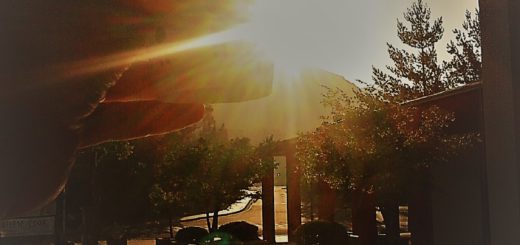Thoughts on Death and Eternity
A few new thoughts on the current state of things, proffered to those visiting this site for the same reason I maintain it, namely as an increasingly rare port in an increasingly violent storm. In other words, these are thoughts for the happy few, we lonely and “socially-distanced” holdouts for reason and civility in a world gone stark raving mad.
“We have to do something.”
For the happy few, that “we” means “you and I and anyone else we can persuade to join us.” For the many, “we” means the State, acting as the omnipotent agent of my desires, or as the strict Father of my perpetual immaturity.
If a nation falls
in the forest, and no one —
cares to make a sound…
People die. They have been doing it for eons, perhaps for as long as there have been men. Sometimes they die in greater numbers this year than last, this decade than the previous one. The outlier years and decades are sometimes caused by wars and famines, and at other times by viruses and bacteria.
Throughout the known history of this race, and, I would venture to guess, throughout its unknown history and prehistory as well, men have understood the ubiquity of death as a necessary corollary of life. They have understood that occasionally there are “Terrible Years” and “Hard Times.” They have accepted these practical truths — truisms, in fact — as part and parcel of life, and even as part of the glory of it all. That is to say, just as the inescapable fact of death heightens the intensity, and intensifies the painful preciousness, of life itself for each individual, so the uncertainty or unevenness of our collective well-being amplifies the importance, and arguably even deepens the meaning, of our shared human existence.
All this is changing today. The glory of life — the beautiful, agonizing longing born of our melancholic awareness of the impermanence, imperfection, and unpredictability of our fate — has vanished from our spiritual horizons, as surely as adult maturity has vanished from our political life. Today, the multitude screams for impossible perfection and rages against impermanence, as though “someone” should do something about these things. As though they could be prevented or eliminated, if only the government would step up and do its job, namely make life eternal.
And make no mistake: the eternity our modern multitude seeks is nothing like the eternity a god might offer, the one the philosophers and poets seek. Ours, rather, is the eternity of the child’s dream world, the timelessness of the playground, in which nothing bad can happen as long as we resist the urge to think, to gain independence, to strive for adult understanding. This Peter Pan notion of eternity is the one our slavish non-citizens of the modern world are craving and demanding, and that our governments are dangling before their childish subjects as a paternalistic promise of pain-free life, risk-free life, loss-free life — life without death.
And that, for those not of this time, which is to say those somehow still able to think beyond the “social mind,” means nothing less than life without life.



